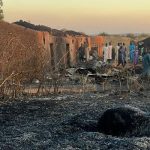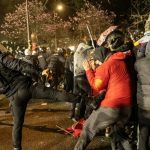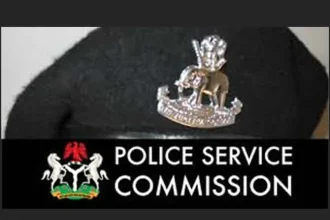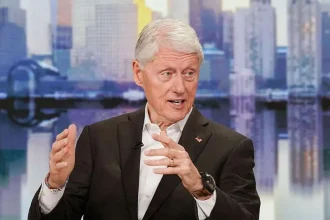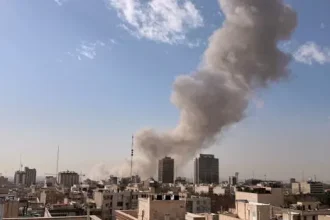The Lagos State Attorney General and Commissioner for Justice, Adeniji Kazeem (SAN), on Thursday, said the delay in the prosecution of the driver and owner of the fuel-laden taker which exploded on the Otedola Bridge last year, was because the police had yet to identify them.
Kazeem said the state was determined to prosecute the driver and the owner of the fuel-laden taker which fell and exploded on the Otedola Bridge last year and claimed multiple lives after suffering brakes failure.
Kazeem said the delay in the prosecution of the tanker driver and its owner was because the police had yet to identify them.
The incident, which happened on June 28, 2018, led to the burning of no fewer than 54 cars and loss of lives.
While briefing journalists on Thursday in Alausa, Ikeja on the scorecard of his tenure as Attorney General in the last four years, Kazeem denied that the case had been abandoned.
He said,
“Yes, we said we were going to prosecute the people that caused that disaster. One of the challenges then was how to identify the perpetrators of that crime. We had said the driver and the owner (of the tanker) needed to be identified. There were all kinds of theories out there, (including) whether the driver had perished in the fire.
“But as we understand, the police traced the owner to Kano and the whole idea was that at the end of the day they would complete their investigation and get the file here in the ministry, so we can commence the prosecution process. Unfortunately, that process has not yet been concluded.”
The attorney general, however, gave the assurance that the case would not be swept under the carpet.
He said,
“I want to assure you that this Otedola Bridge disaster will not be swept under the carpet. Once we get the facts properly on investigation, we will commence the process of prosecuting the suspects in that matter.”
Asked why fuel tankers and other articulated vehicles, which movements were restricted to the night after the accident, were back on the road in the daytime, Kazeem said the state had to review the directive, having realised some of its implications, including security.
He said,
“I recollect that that directive was given. It was enforced at some point in time but the practicality began to dawn on the state government and that issue had to be reviewed. That review is still ongoing because it is not a straight forward issue; it has all kinds of implications, including security issues.”




